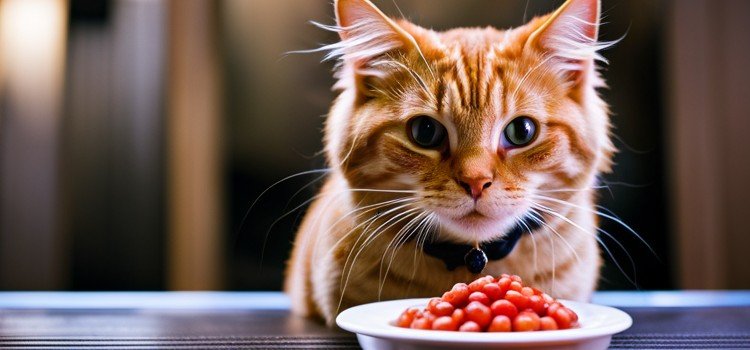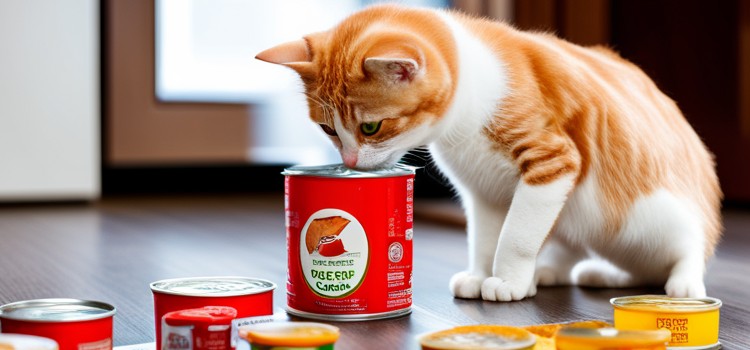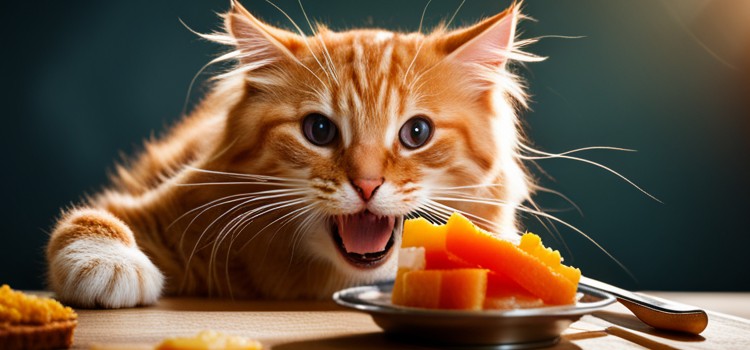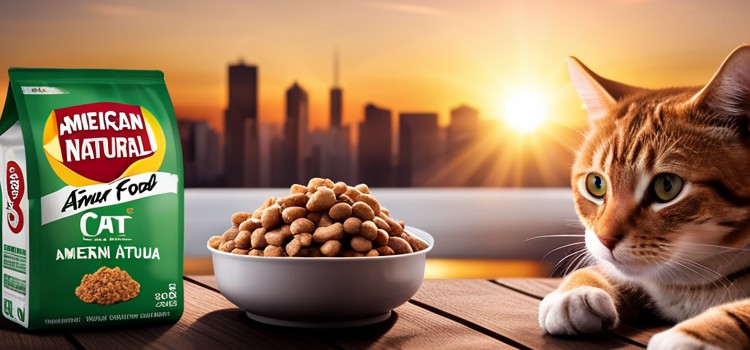As an Amazon Associate committed to the mission of improving the lives of our readers, Live-Clear.com receives a small commission from eligible purchases made through our affiliate links. This revenue enables us to keep producing insightful articles and other material.
If you’re a cat owner, you probably adore your feline companion, but one aspect of cat ownership can be less than pleasant: the smell of cat food. Whether it’s the lingering odor in your home or the scent left behind in your cat’s feeding area, dealing with cat food smell can be challenging. This comprehensive guide will explore strategies and tips to eliminate cat food smell and keep your home smelling fresh and clean.

Understanding Cat Food Odor
Why does cat food smell?
Cat food can emit strong odors due to several factors. It’s primarily because cat food contains animal-based ingredients that can become rancid and produce a pungent smell when exposed to air. Additionally, cat food often contains fish or meat, which can be particularly aromatic.
The importance of proper storage
It’s crucial to store cat food correctly to reduce cat food smell. Permanently seal the packaging tightly, use airtight containers, and avoid storing food in humid or warm places. Proper storage prevents the spread of odors and helps maintain the freshness of the food.
Daily Feeding Routine
Choosing the right cat food
Opt for high-quality cat food that contains fewer fillers and artificial additives. Quality cat food is healthier for your cat and produces fewer odors. Consider your cat’s specific dietary needs and consult a veterinarian to determine the best cat food for their age, breed, and health concerns. This will ensure that your cat receives the necessary nutrients and reduces the chances of digestive issues or allergies.
Controlled portions
Overfeeding your cat can lead to excess waste and more potent odors. Follow the recommended portion sizes on the cat food packaging and consult your veterinarian for your cat’s specific dietary needs. In addition, controlled portions can also help prevent obesity in cats, leading to various health problems such as diabetes and joint issues. Monitoring your cat’s weight and adjusting their portion sizes is essential to maintain a healthy body condition.
Cleaning cat bowls
Regularly wash your cat’s food and water bowls with hot, soapy water to prevent residual odors. Stainless steel or ceramic bowls are easier to clean and less likely to retain odors than plastic. Replacing your cat’s bowls every six months is recommended to ensure they are in good condition and free from any potential bacteria buildup. This will help maintain a hygienic feeding environment for your cat and reduce the risk of any digestive issues.
Feeding schedule
Establish a consistent feeding schedule for your cat. Cats thrive on routine, which can help regulate their digestive system, reducing strong-smelling waste. Having a consistent feeding schedule also helps prevent overeating and obesity in cats. Dividing their daily food intake into multiple small meals throughout the day is recommended to mimic their natural hunting behavior. This may also aid in avoiding stomach problems like diarrhea or vomiting.
Proper Food Storage
Airtight containers
Transferring cat food into airtight containers prevents odors from escaping. Ensure these containers are clean and dry before filling them with food to maintain freshness. Additionally, storing cat food in airtight containers can help keep out pests and insects that may be attracted to the smell of the food. It is essential to store the containers in a cool, dry place to preserve the food’s quality further and prevent spoilage.
Refrigeration
For wet cat food, store open cans in the refrigerator. Cold temperatures slow down the growth of bacteria and reduce odors. Remember to bring refrigerated food to room temperature before serving it to your cat. Refrigerating wet cat food not only helps to slow down the growth of bacteria and reduce odors, but it also extends the shelf life of the food.
Keeping open cans in the refrigerator ensures your cat’s food stays fresh and safe for extended periods. Allow the refrigerated food to reach room temperature before serving it to your feline friend for optimal taste and enjoyment.
Freezing options
If you purchase cat food in bulk, consider freezing portions in airtight bags. This can extend the shelf life and prevent the food from producing solid odors. Additionally, freezing cat food can help maintain its nutritional value. When properly stored, frozen cat food can retain its vitamins and minerals, ensuring your feline companion receives the necessary nutrients. However, it’s important to thaw the frozen portions thoroughly before feeding them to your cat to avoid any digestive issues.

Kitchen Odor Control
Ventilation
When feeding your cat in the kitchen, ensure good ventilation. Open windows or use exhaust fans to help disperse any lingering odors. This will help keep the kitchen smelling fresh and prevent the odor from permeating other areas of your home. Regularly cleaning your cat’s food bowls and storing any leftover cat food in airtight containers can further minimize kitchen odors.
Natural deodorizers
Place bowls of baking soda, activated charcoal, or coffee grounds in your kitchen to absorb and neutralize odors. These natural deodorizers can be effective in reducing cat food smells. Another natural deodorizer you can try is placing a bowl of vinegar in your kitchen. Vinegar has odor-absorbing solid properties and can help eliminate unpleasant smells. Additionally, keeping your kitchen well-ventilated by opening windows or using exhaust fans can help reduce lingering odors.
Cleaning routines
Regularly clean your kitchen, especially the area where you feed your cat. Wipe down surfaces and mop the floor to prevent the accumulation of food residue and odors. In addition to regular cleaning, it is also essential to clean your cat’s food and water bowls regularly. This will help prevent the growth of bacteria and eliminate any potential odor sources in your kitchen. Additionally, consider using natural cleaning solutions, such as vinegar and water, to eliminate odors and maintain a fresh-smelling kitchen.
Cat Litter Box Maintenance
Location
Choose a well-ventilated and secluded location for the litter box. This will help contain any odors and ensure your cat has privacy while using it. Keeping the litter box away from areas where your cat eats or sleeps is also essential to maintain good hygiene. Additionally, regularly scoop out the waste and replace the litter to prevent odors from accumulating and keep your cat’s litter box clean and fresh.
Choice of cat litter
Select a cat litter that is designed to control odors. There are various options available, including clumping litter and natural alternatives. Clumping litter is popular because it forms solid clumps when wet, making it easier to scoop out waste. Natural alternatives, such as pine or corn-based litter, are also a good choice as they are biodegradable and environmentally friendly. Consider your cat’s preferences and any potential allergies when selecting the best litter for your furry friend.
Frequent cleaning
Make sure to replace the litter and scoop the box every day constantly. Proper maintenance is essential in preventing the spread of cat waste odor in your home. Regular cleaning of the litter box helps maintain a clean and odor-free environment for you and your cat. Keeping the litter box clean can also prevent your cat from developing any litter box aversions or behavioral issues.
Dealing with Accidents
Immediate cleanup
If your cat has an accident, you should clean the area immediately. Use pet-specific stain and odor removers designed to break down the enzymes in cat urine, eliminating both the stain and odor. It is essential to clean up accidents promptly to prevent your cat from repeatedly soiling in the same spot. This will help maintain a hygienic living environment and discourage your cat from developing inappropriate elimination habits.
Stain and odor removers
Invest in high-quality stain and odor removers designed for pet accidents. These products effectively remove any traces of cat food smell or urine. Using a high-quality stain and odor, remover formulated explicitly for pet accidents will eliminate all traces of cat food smell or urine. This helps maintain a clean and hygienic living environment and discourages your cat from developing inappropriate elimination habits.
Maintaining a Clean Home
Regular cleaning routines
Maintain a consistent cleaning schedule for your home. Vacuum, dust, and mop regularly to prevent odors from accumulating on surfaces. Additionally, regularly wash any bedding or fabric surfaces your cat comes into contact with, as these can also hold onto odors. Furthermore, consider using air purifiers or opening windows to improve air circulation and reduce lingering smells in your home.
Pet-friendly cleaning products
Use pet-friendly cleaning products that are safe for your cat and the environment. Many of these products are formulated to eliminate pet odors effectively. These products are often free of harsh chemicals and fragrances that can harm your cat’s respiratory system. Reading the labels and choosing products designed explicitly for pet-friendly households is essential. Additionally, consider using natural remedies such as baking soda or vinegar to neutralize odors without harming your cat’s health.

Conclusion
Dealing with cat food smell is a common concern for cat owners, but with the right strategies and routines, you can keep your home smelling fresh and clean. Understanding the causes of cat food odor, implementing a proper feeding routine, storing food correctly, and maintaining a clean environment can create a more pleasant living space for you and your beloved feline friend. Remember, a clean and odor-free home benefits you and ensures your cat’s healthier and happier life.
FAQs on Eliminating Cat Food Smell
While air fresheners can temporarily mask odors, it’s better to address the source of the problem. Using them excessively may be harmful to your cat’s health.
Regularly clean your cat’s feeding area litter box, and use natural odor absorbers like baking soda or activated charcoal.
Choosing suitable cat litter and maintaining a regular cleaning schedule is essential for minimizing litter box odors.
You can create natural air purifiers by placing houseplants like snake plants or spider plants around your home to help filter the air.
Low-quality cat food with excessive fillers and additives can contribute to strong odors. Choosing a high-quality diet can help mitigate this issue.
Remember, a little effort goes a long way in ensuring that your home remains pleasant for you and your cat.
Amazon and the Amazon logo are trademarks of Amazon.com, Inc, or its affiliates.



